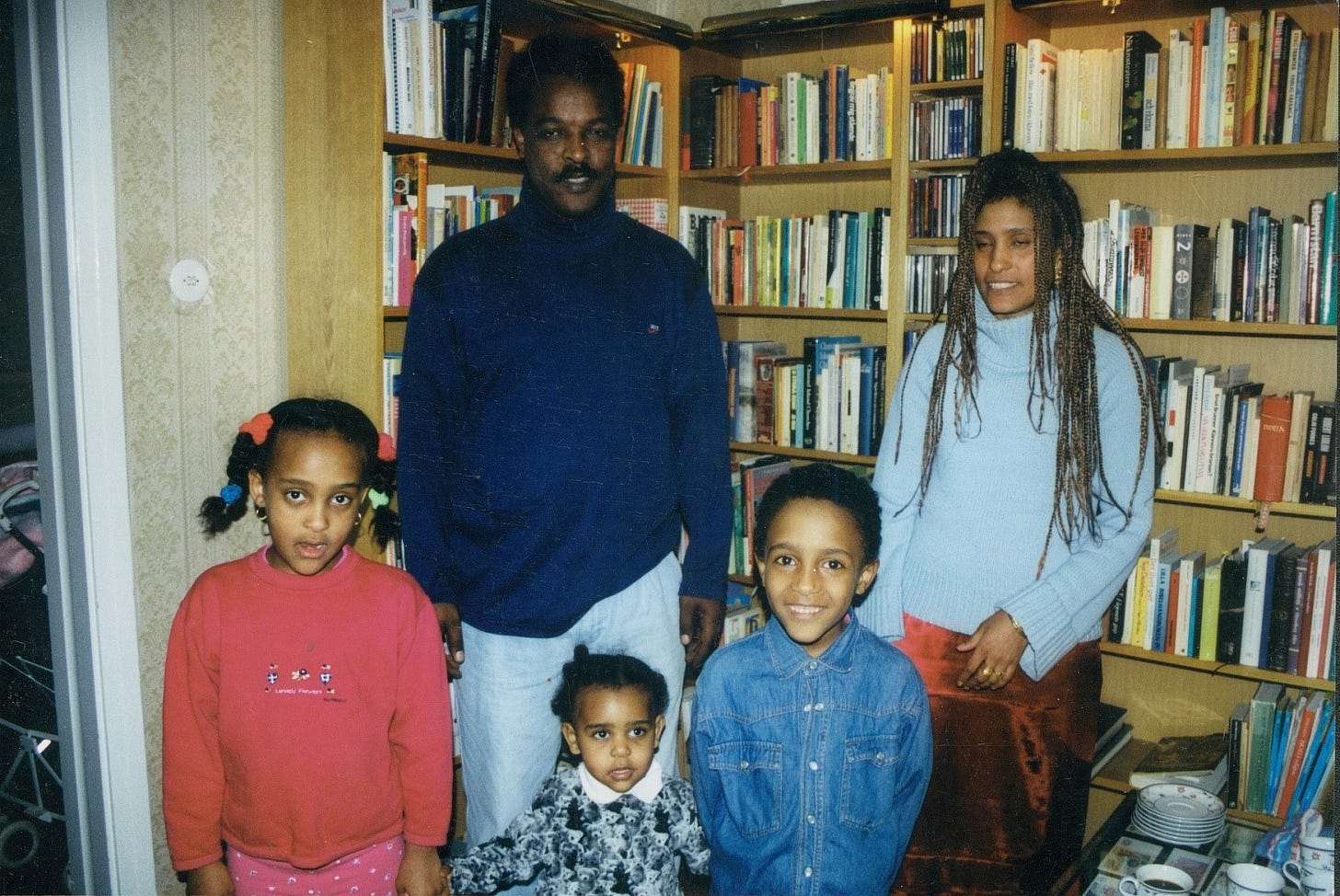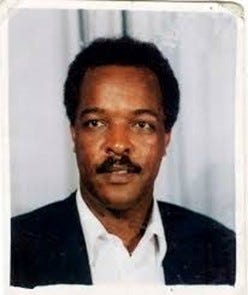Buried Alive - Dawit Isaak's 8,000th day of imprisonment
Time for a serious new policy approach

#freedawit #freeguiminhai #freeahmadrezadjalali. #journalismisnotacrime #longestimprisonedjournalistintheworld #humanrights #accountability #justiceforeritrea #freeeritrea
August 19, 2023
Today marks Swedish-Eritrean journalist Dawit Isaak’s 8,000th in prison. On this grim anniversary, the parallels to other persecuted journalists and political prisoners jailed in Eritrea and around the globe for exercising their right to free speech and dissent are particularly acute.
Dawit Isaak and his colleagues are now the longest imprisoned journalists in the world.
In a recent interview with Canada’s Globe & Mail Dawit’s daughter Betlehem Isaak called for more focused Swedish and international efforts to free her father and to ensure that the Eritrean regime is held accountable for its crimes. She also spoke about the heavy personal toll the two decades long fight to rescue him has taken on her and her family.
July 28, 2023 Geoffrey York, Africa Bureau Chief
"Mr. Isaak’s daughter, Betlehem, is now a university graduate with a journalism degree, and the 29-year-old mother of a young son. Her long struggle for her father’s freedom, and for the human rights of the Eritrean people, has become almost a full-time job for her. But it has inflicted a heavy toll. Her therapist tells her that she has been suffering trauma for many years because of the endless fight. “I’m very exhausted,” she told The Globe and Mail in an interview. “The doctor has been telling me to rest for months. They have done all the tests and can’t find anything, but sometimes I can’t even get out of bed because it’s so stressful.”
Western countries, she believes, could do much more to defend human rights in Eritrea. They could restrict its longstanding practice of collecting a mandatory two-per-cent tax from Eritrean citizens abroad. They could ban the fundraising festivals that are organized regularly by Eritrean embassies. But instead of pressuring the regime, the West has largely ignored its atrocities, including the widely documented massacres of Tigrayans by Eritrean troops in Northern Ethiopia in 2020 and 2021, she said.
“I’m angry at the world for not reacting with force. I get very depressed about it. I felt, ‘My God, we are alone in this.’” Despite the trauma that it brings, she perseveres with her battle: “I feel that I’m doing important work. It’s a role that’s been given to me. We’re all part of it. Eritreans are pursuing the same struggle by fleeing from the country. “I want to be a good example for my son and others: You don’t bow down to power.”
In an article released yesterday in Swedish in Expressen, with the English version available at Kinamedia, I argue that the traditional model of consular support for Swedish citizens imprisoned abroad is hopelessly outmoded. What is needed is a highly coordinated, multi-agency approach to foreign political hostage taking. The Dawit Isaak case shows it is time for a serious policy shift, as happened in the U.S. in recent years, with impressive results.
August 18, 2023 Susanne Berger
Swedish citizens Dawit Isaak, Gui Minhai and Ahmadreza Djalali are essentially foreign political hostages. Sweden’s official handling of their cases needs to better reflect this reality.
After twenty-two years, the trauma of Swedish-Eritrean journalist Dawit Isaak’s unlawful imprisonment in Eritrea continues unabated – cruelly, inexorably, with no end in sight.
Dawit Isaak is currently one of the longest imprisoned journalists in the world. He was detained in 2001, along with about a dozen colleagues, during Eritrean President Isaiah Afwerki’s crackdown on independent media. Just last month, in a sharply worded opinion, the UN Working Group on Arbitrary Detention (UNGWAD), expressed its “utmost concern regarding the […] unrebutted allegation that Mr. Isaak has been in pretrial detention for over twenty-one years without being charged [with a crime] and without any perspective of trial.” The Working Group called for Dawit’s immediate and “unconditional release” and also took the notable step of referring his case to the Working Group on Enforced and Involuntary Disappearances and the UN Special Rapporteur on torture and other cruel, inhuman or degrading treatment or punishment, among others. Dawit has not had any contact with the outside world since 2005. …







